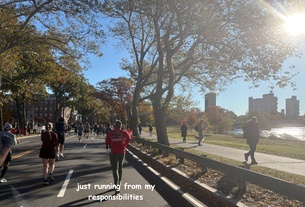As more organizations are created—43 of the College’s 399 groups were recognized this year, according to Friedrich—administrators and faculty worry that with meetings to attend and conferences to run, students are forgoing the chance to dive into a liberal arts curriculum in favor of fulfilling their out-of-class obligations.
“Students now have more things to do than time. So how do you calculate what you aren’t going to do and what you are going to do?” Associate Secretary of the Administrative Board Brett Flehinger asks. “With extracurriculars...you’ve got an obligation to other people, so if you’re in the leadership in a group or club and you’re running short on time, you still might feel committed to do that.”
Flehinger adds that it is not “uncommon” for students who go before the Ad Board, either for poor grades or allegations of academic dishonesty, to cite overcommitment to extracurriculars as a reason for their academic performance or actions.
Many administrators say they worry that heavy extracurricular involvement is adding unnecessary stress to students’ lives. Others share the concern that students are using their time at Harvard not to deeply engage with ideas, but to add bullet points to their resumes.
“You’ll be 22 when you graduate, you’ll be 70 when you retire, you have 48 years to work on your profession—you have four years at Harvard,” says History professor Charles S. Maier ’60. “You shouldn’t be using your four years to be adding to your 48 years for your profession.”
OUT OF THE BOOKS, INTO THE SUITS
By and large, the students who are most invested in student groups do not contest that even though they enjoy their classes, they have chosen to prioritize extracurriculars. Where their viewpoints differ from those of administrators is that they argue that their education directly benefits from this decision.
{shortcode-214a6bdc729b6eee243c89fe6b18313370e3c241}
Driven in part by the desire to develop real-world skills that they say are difficult, if not impossible, to develop in a traditional liberal arts classroom, these students turn to extracurriculars for what they describe as a more engaging learning experience than the classroom.
“I've never had to manage people in a classroom setting,” Mayopoulos says. “Extracurriculars provide you with all of these opportunities that don't really have any other place to occur at Harvard.”
Although some professors, like Maier, decry this devotion to pre-professional pursuits, extracurricular involvement takes on special significance for students looking to gain the skills necessary for professional careers.
Ryley R. Reynolds ’15, president of HSA, says she chose Harvard over Wharton, the University of Pennsylvania’s business school, precisely to participate in the College’s extracurriculars. Reynolds says she had planned to attend Wharton, but at Visitas, some students at HSA asked her: “Why learn about business when you can actually run a business?” That opportunity—not Harvard’s academics—prompted her to change her mind.
Reynolds is not alone. Many students say they choose to come to Harvard with extracurricular opportunities in mind, and when they arrive, some go as far as to say that they learn more from their experiences outside of the classroom than in it.
“I’m much more passionate about finding a way to make the Harvard China Forum better than trying to figure out how to make my p-set better,” Wang says. “I do both, but I’m more passionate about the former.”
Critical faculty members suggest that students might be less likely to prioritize extracurriculars over the classroom if courses were more rigorous, engaging, or both. Many students say that their extracurricular commitments are actually more challenging than their academics, because peers keep them accountable for doing their work.


